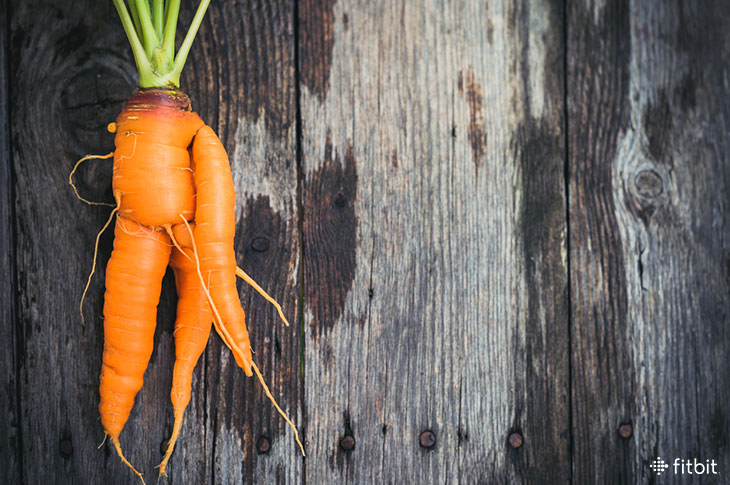By Jackie Newgent, RDN
Do you peruse the produce aisle in search of fruit and veggie perfection? There’s absolutely nothing wrong with wanting cute clementines or pretty potatoes. In fact, if that helps you to eat more of them, go for it! But there’s a new trend, celebrating the “ugly” produce that usually gets picked over, from bruised and battered apples to weird and wonderfully twisted carrots. Here’s why you might want to reevaluate your perception of what pretty means for produce, and start putting ugly fruits and veggies in your grocery cart.
Ugly Produce Is Good for the World
By shopping for imperfect fruits and vegetables, you can personally make a positive impact on the planet. How so? Food waste happens all across the supply chain, from the farm to your fork. The United States Department of Agriculture estimates as much as 40 percent of all food is wasted in the U.S., costing about 133 billion pounds of produce, or roughly $161 billion per year. Much of this loss is due to fruits and veggies being discarded that simply don’t meet size standards. And while unwanted produce on a farm may be composted or fed to animals, that doesn’t happen in supermarkets, and composting at home doesn’t happen enough. A lot ends up in landfills, where it contributes to methane emissions (methane is a potent greenhouse gas) and ultimately climate change. So, by putting ugly produce on your plate, you’re taking one small step toward a better world. Now that’s a beautiful thing!
Good Nutrition Comes in All Shapes and Sizes
But, nutritionally speaking, does beauty on the outside tell the whole story about what’s on the inside? Since supermarkets are the most concerned about size, the answer is a big, fat “no!” In general, shape and size don’t matter when considering nutrition—nor do some minor blemishes or bruises. Ugly produce can be just as nutrient-dense and delicious as their prettier counterparts. There’s even some preliminary evidence suggesting that when fruits or vegetables are under stress, such as scarring of apple peels or injury to grape leaves, they develop stronger antioxidants. However, if produce is in poor condition, such as bearing excessive bruises or major gashes, or has simply gone bad, that will contribute to nutrient loss.
How to Shop for Ugly Produce
Look for ugly produce at your local grocery store, where it may be arriving soon—if it hasn’t already. Grassroots efforts and campaigns are growing across the country, and since 2016, several chains, including Giant Eagle, Walmart, Hannaford, Hy-Vee, and Whole Foods Market, began selling select ugly produce. Also, ask farmers at your community farmers’ market if they offer discounted boxes of odds and ends. You can shop online, too, with companies that source directly from farms, such as Imperfect Produce and Hungry Harvest. As for safety, avoid anything that’s gotten too ugly, like moldy peaches or overly slimy celery, or with deep cuts, which could harbor harmful bacteria. But minor imperfections are A-OK. And you might even save money on your grocery bill, since odd-looking fruits and veggies often come at lower cost!
More Ways to Show Ugly Produce You Care
Don’t feel sorry for ugly fruits and veggies. Shop for these darlings. Take selfies with them (#LoveTheUgly). Savor them. And tell your friends and family to do the same. There’s no better time to start celebrating funky looking produce, and developing healthy habits, by putting all kinds of colorful fruits and veggies on your plate. If you’re hungry to do more, you can talk to your local supermarket manager about their offerings, sign petitions aimed at the larger chains, and reduce food waste in your own household. There are so many small steps you can take to improve the world—and your waistline, while you’re at it.
This information is for educational purposes only and is not intended as a substitute for medical diagnosis or treatment. You should not use this information to diagnose or treat a health problem or condition. Always check with your doctor before changing your diet, altering your sleep habits, taking supplements, or starting a new fitness routine.

If you have questions about a Fitbit tracker, product availability, or the status of your order, contact our Support Team or search the Fitbit Community for answers.
Please note: Comments are moderated and may not appear immediately after submission.